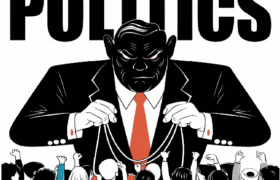Cricket, like all sports, should be apolitical, focused on fair competition and the joy of the game, free from political interference. Every sport must emphasize respect for opponents, promote sportsmanship, and foster unity. By transcending cultural and geographical barriers, Cricket and all other sports bring together people from diverse backgrounds, creating a shared space for enjoyment and mutual respect. However, in recent years, the Indian cricket team has attracted global attention for troubling trends linked to the increasing politicization of the sport. The cricket pitch has, at times, become a battleground influenced by differing ideologies and cultural values, shaping the game into something more than just competition (Majumdar, 2018).
Many Hindu nationalist and political groups have begun using cricket as a platform to spread harmful ideologies, often targeting Muslim players, supporters, and coaches. As a result, many young Muslims feel alienated from the sport they love (Nandy, 2000). This attitude is driving some
individuals to stop watching and playing cricket, particularly in relation to the Indian team.
The Indian government’s increasing political involvement in cricket is raising concerns about the growing overlap between sports and politics (Sardesai, 2018). Appointments of politicians to key positions in cricket administration, the use of cricket diplomacy to further foreign policy goals, and the manipulation of narratives all serve to promote nationalist ideologies. This, in turn, creates a toxic atmosphere that undermines the integrity and spirit of the sport.
Sports have long been considered a sacred space where athletes and supporters unite to celebrate life, the frustration of defeat, and the joy of victory (Guha, 2018). However, in recent years, the Indian cricket team has increasingly blurred the line between the sport and politics. Once a symbol of national pride and unity, the team has now become a battleground for political agendas, with events that were once celebrated as unifying moments now fueling division.
Hindu nationalism has created a toxic atmosphere around the Indian cricket team, turning the sport into a political tool where players, supporters, and even the game itself are used to further political agendas (Majumdar, 2018). A notable example of this politicization is the change in the team’s uniform, which now reflects Hindu nationalist symbolism, marking a significant shift in how the cricket team is represented.
The term “Bharat,” a Hindi word for India, now appears on the Indian cricket team’s shirts, written in large Sanskrit-inspired letters (Nandy, 2000). This shift reflects more than just national pride; it symbolizes the imposition of a specific political ideology. While a shirt may seem harmless, this change is part of a larger effort to promote Hindu nationalist identity and diminish India’s diverse cultural heritage.
Moreover, members of the Indian cricket team have become symbols of India’s political ideologies. Players like Mohammed Shami, who have been criticized for their Muslim identity, face the brunt of sectarianism. At the same time, players like Virat Kohli and Rohit Sharma are often celebrated as representatives of Hindu nationalist ideals (Sardesai, 2018). This sectarianism has deeply politicized the sport, undermining the unity and inclusiveness that cricket once represented.
The politicization of cricket extends beyond players and their uniforms. Extreme narratives, particularly in matches between India and Pakistan, have intensified the rivalry. These games, once celebrated for their competition, now serve as platforms for spreading hatred, especially against Muslim players and Pakistan’s values. This toxic atmosphere leads to threats and violence, weakening societal unity and turning sports into tools for division.
To prevent further politicization, the Board of Control for Cricket in India (BCCI) must take immediate action by condemning sectarianism and extremist rhetoric. Players, commentators, and supporters who perpetuate divisive narratives should be disciplined. Encouraging a more inclusive, respectful sports culture is essential.
Furthermore, the Indian government must address the social and economic injustices fueling radical politics, without compromising the secular principles that should define the nation.
In conclusion, the politicization of Indian cricket must be urgently addressed. By fostering a welcoming and inclusive atmosphere, we can restore cricket’s role as a symbol of national pride and unity. Indian cricket should return to its roots, celebrating the country’s rich diversity and promoting a culture of respect and sportsmanship.
References
Guha, R. (2018). India’s Cricket Century. Oxford University Press.
Majumdar, B. (2018). Cricket in India: A Very Short Introduction. Oxford University Press.
Nandy, A. (2000). The Tao of Cricket: On Games of Destiny and the Destiny of Games. Oxford University Press.
Sardesai, R. (2018). Democracy’s XI: The Great Indian Cricket Story. Juggernaut Books.
Written By: Ali Shafat Khan




